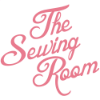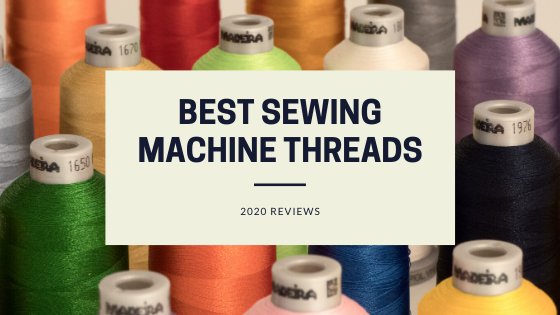If you are up for any sewing project, then you better gather some ideas about threads. There are tons of different threads on the market, but you have to pick the one that is most suitable for your project. Threads are long interlocking fibers (natural or synthetic), which can be used for multiple purposes. Sewing threads are exclusively produced to fit needles and make stitches.
Now, which one is the best for you? There are wide variants of threads with their unique quality in use. The thread variants determine the stitch and quality of the garments. Threads can be categorized depending on their fiber or purposes. Let’s dive deep to know more about machine threads.
Things to Look at Before Buying Sewing Thread
How can I buy the right sewing thread? An obvious question with no specific answer. But, if you follow a few considerations, then you may pick the right yarn for your project.
1. Materials to Sew
Fabric poised importance in terms of choosing your threads. Light fabrics require lightweight sewing threads, while thick fabrics need strong and thick sewing threads. Other than that, special variant fabrics have specialized threads. For example, denim requires its own category of threads for topstitch sewing.
2. Sewing Machine
Sewing machines have a direct implication of sewing threads. Most regular machines can run all thread sizes, but there are specialized machines like Serger and Overlock that work well with thick threads, so pick the machine according to your sewing project.
3. Read Spool Carefully
Reading the spool is important to know more about your thread. It contains a color number, fiber, manufacturer company, weight, and even the total number of strands that are twisted together. You would see two numbers listing on this. A higher number indicates a more excellent thread.
Thread Categories: Fiber
1. Cotton Thread
This natural fiber is still popular among people for many reasons. It is heat-resistant and does not stretch after finished garments. Lots of Quilters use cotton thread because they are using cotton fabric, however it can be too heavy for a lot of lightweight cotton garments.
2. Polyester Threads
Polyester threads can be used with multiple fabrics. These threads are strong and stretch to some extent. Polyester threads get silicone or wax finishes, so they are hot iron sensitive. They are dye adsorbent and are highly popular for sewing knit and woven fabrics.
3. Nylon
It is a popular thread for all different fabric stitching. Nylon threads are semi-transparent and have different weight variants. This is the strongest among all. These threads do not feature moisture-wicking and are also sensitive to hot iron presses.
4. Silk Thread
Silk is the most lustrous and strongest natural fiber on the market. It works great with both delicate and heavyweight fabrics. This is also a thread for the most smoothly finished products. It is flexible and elastic to some extent. Silk is highly expensive in comparison to other threads. I use silk thread for basting while I’m using couture techniques because the smooth nature allows for easy removal after machine stitching.
5. Metallic Thread
Metallic thread is used for decorative purposes. They are for specialized uses. Maybe a fancy buttonhole in your jacket or designing the decorative back pocket of your jeans is where it comes to play. These threads are strong and do not stretch. They also have different thickness variants.
6. Rayon Thread
It is a popular hit in the embroidery industry. This thread is not as strong as other options. They do stretch and are inexpensive. These threads are not a good moisture absorber as well. Also, they are quite prone to breaking and are not recommended for sewing seams.
7. Woolen Thread
It is the integration of multiple wool fibers. They have multiple variants and each have specialized uses. They are of natural origin and do stretch a bit. These threads are highly popular for winter clothes.
8. All Purpose Thread for Sewing
All purpose threads are polyester threads that are coated with cotton. It is the best variant for sewing machines as well. Yes, it can be used on woven, knits, synthetic, or other variants. They are heat-resistant and stretchy.
Thread Categories: Purpose
1. Elastic Thread
Elastic threads elasticize your overall garments. Elastic thread is a must for the shirring process. Most of the time, they are hand-wound on the bobbin.
2. Bobbin Thread
They are for embroidery threads. They are used for industrial non-stop production. Because they are thin and light, they can be used for hemming and machine basting.
3. Quilting Thread
They are strong for both hand and machine types. These threads never break needles in half, so they are also safe to use. On another note, some quilting thread is colorless and works great for hemming.
4. Basting Thread
This lightweight thin thread works well for basting materials. They are strong and easy to remove from the needle. You can also try lingerie thread as a good alternative to this.
5. Lingerie Thread
It is a strong nylon variant mainly used for beadwork. This is also a wash away thread. You can also use basting stitches for stronger finishes.
6. Fusible Thread
It is a thread similar to dental floss. It is highly temperature-sensitive and can melt at a low temperature. These threads are popular for ornamental needlework. It is also popular for heavy-duty stitching as well.
7. Serger Thread
If you want to avoid finishing seams, then this is the best option. Serger threads are finer than regular threads. They are used to cove the fabric’s edges so as to make sure the fabric is not fraying.
8. Button and Carpet Thread
This is the best hand sewing thread option for heavy duty work. It is a complete mixture of coated polyester and cotton. This unit is also heavier than embroidery machine threads.
9. Denim Thread
They are specialized for denim uses only. It is heavyweight and stronger than other threads. This is used for topstitch, overlock seams, and many more. They are colorful and are not stretchy at all.
10. Others
There are some variants of threads like textured thread, filament thread, bonded thread, spun thread, and much more.
It’s BEST to consider all your options before you start. As a rule, for home sewing, cotton covered polyester all purpose thread is the best and for quilting, a durable cotton quilting thread works great. To get specific information, on which threads to use for garment production, contact your fabric manufacturer.


